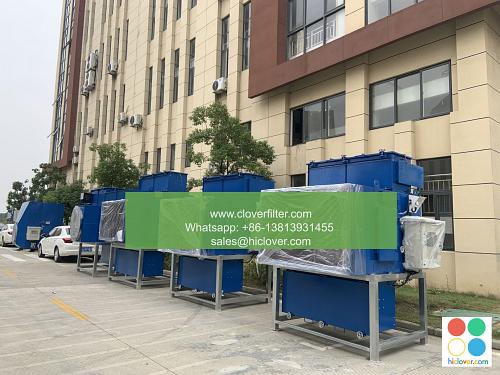The Role of Air Filters in Reducing Carbon Footprint and Emissions

The world is shifting towards a more eco-friendly and sustainable future, with a significant focus on reducing carbon footprint and emissions. One crucial aspect of achieving this goal is the implementation of effective air filtration systems. Air filters play a vital role in minimizing the release of harmful pollutants and greenhouse gases into the atmosphere, thereby contributing to a cleaner and healthier environment. In this article, we will delve into the significance of air filters in reducing carbon footprint and emissions, highlighting various application areas and exploring the benefits of sustainable air filtration.
Industrial Applications of Air Filters
In industrial settings, air filtration systems are essential for reducing emissions and pollutants released during manufacturing processes. HEPA filters, activated carbon filters, and ultra-fine filters are commonly used to capture particulate matter, volatile organic compounds (VOCs), and nitrogen oxides (NOx). By implementing efficient air filtration systems, industries can minimize their carbon footprint and reduce the environmental impact of their operations. Key application areas include:
* Power generation
* Chemical processing
* Pharmaceutical manufacturing
* Food processing
Commercial and Residential Applications
In commercial and residential settings, air filtration systems are crucial for maintaining indoor air quality (IAQ) and reducing energy consumption. High-efficiency air filters can help remove allergens, pollutants, and bacteria from the air, creating a healthier environment for occupants. Additionally, smart air filtration systems can optimize energy efficiency and reduce carbon emissions by minimizing the need for heating, ventilation, and air conditioning (HVAC) systems. Key application areas include:
* Office buildings
* Hospitals
* Schools
* Residential homes
Transportation and Automotive Applications
In the transportation and automotive sectors, air filtration systems play a critical role in reducing emissions and pollutants released by vehicles. Cabin air filters and engine air filters are designed to capture particulate matter, pollutants, and odor-causing compounds, improving indoor air quality and reducing carbon footprint. Key application areas include:
* Passenger vehicles
* Trucks and buses
* Aircraft
* Marine vessels
Benefits of Sustainable Air Filtration
The implementation of sustainable air filtration systems offers numerous benefits, including:
* Reduced carbon footprint
* Improved indoor air quality
* Increased energy efficiency
* Minimized emissions
* Cost savings
By adopting eco-friendly and sustainable air filtration solutions, individuals and organizations can contribute to a cleaner and healthier environment, while also reducing their carbon footprint and emissions.
Conclusion
In conclusion, air filters play a vital role in reducing carbon footprint and emissions across various application areas. By implementing efficient and sustainable air filtration systems, industries, commercial and residential settings, and the transportation sector can minimize their environmental impact and contribute to a cleaner and healthier environment. As the world continues to shift towards a more eco-friendly and sustainable future, the importance of air filtration systems will only continue to grow. It seems like you’re ready to start a conversation or ask a question, but you haven’t provided a specific prompt yet. What’s on your mind? Would you like to discuss a particular topic, ask for advice, or maybe explore a creative idea? I’m here to help with whatever you need!

